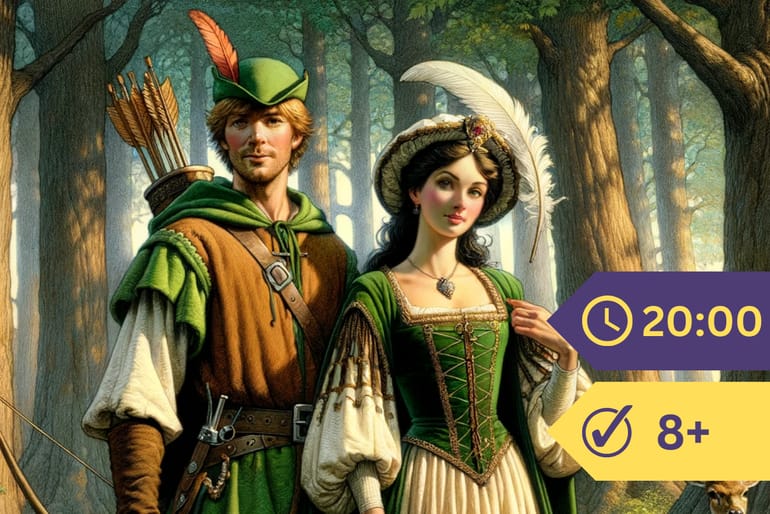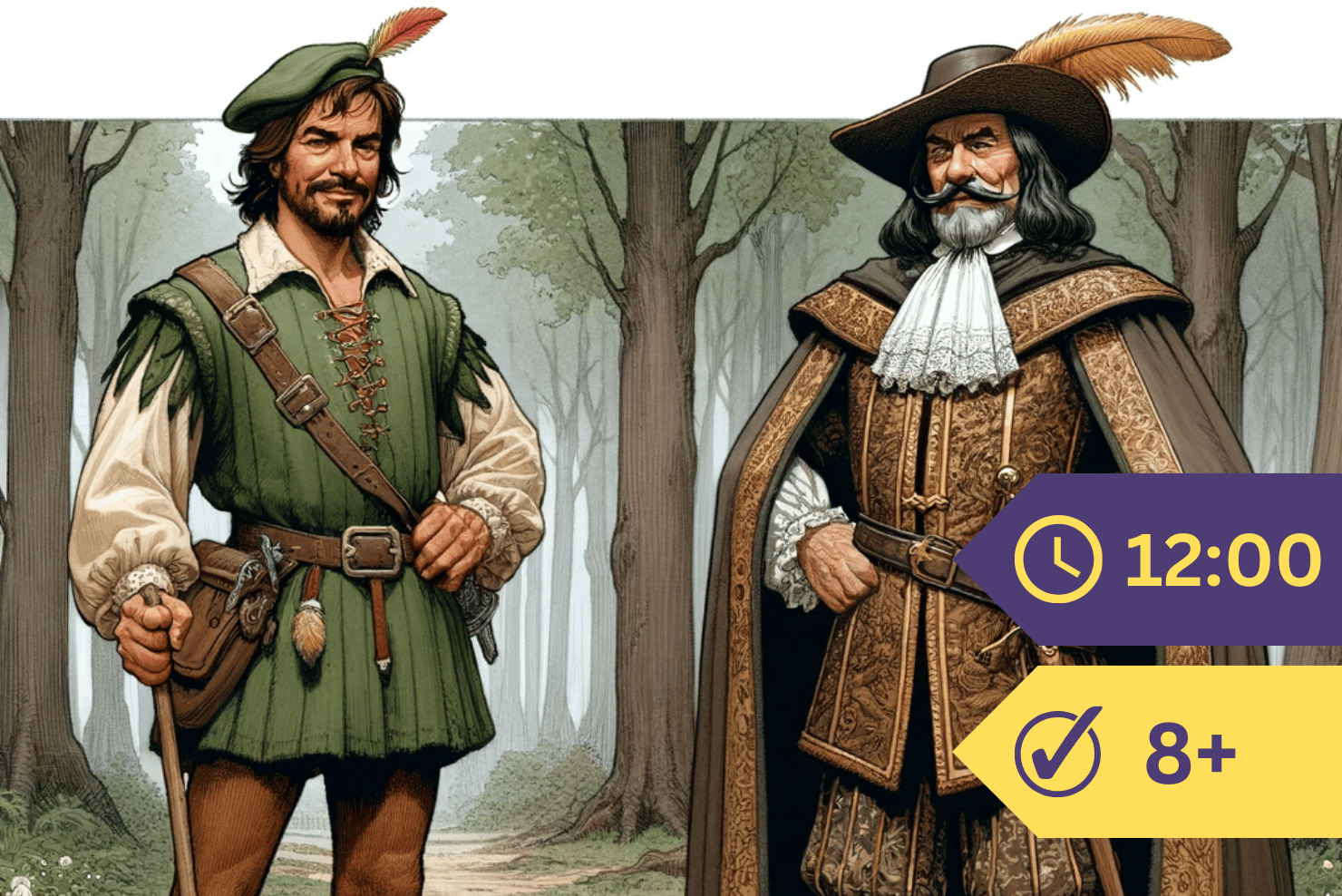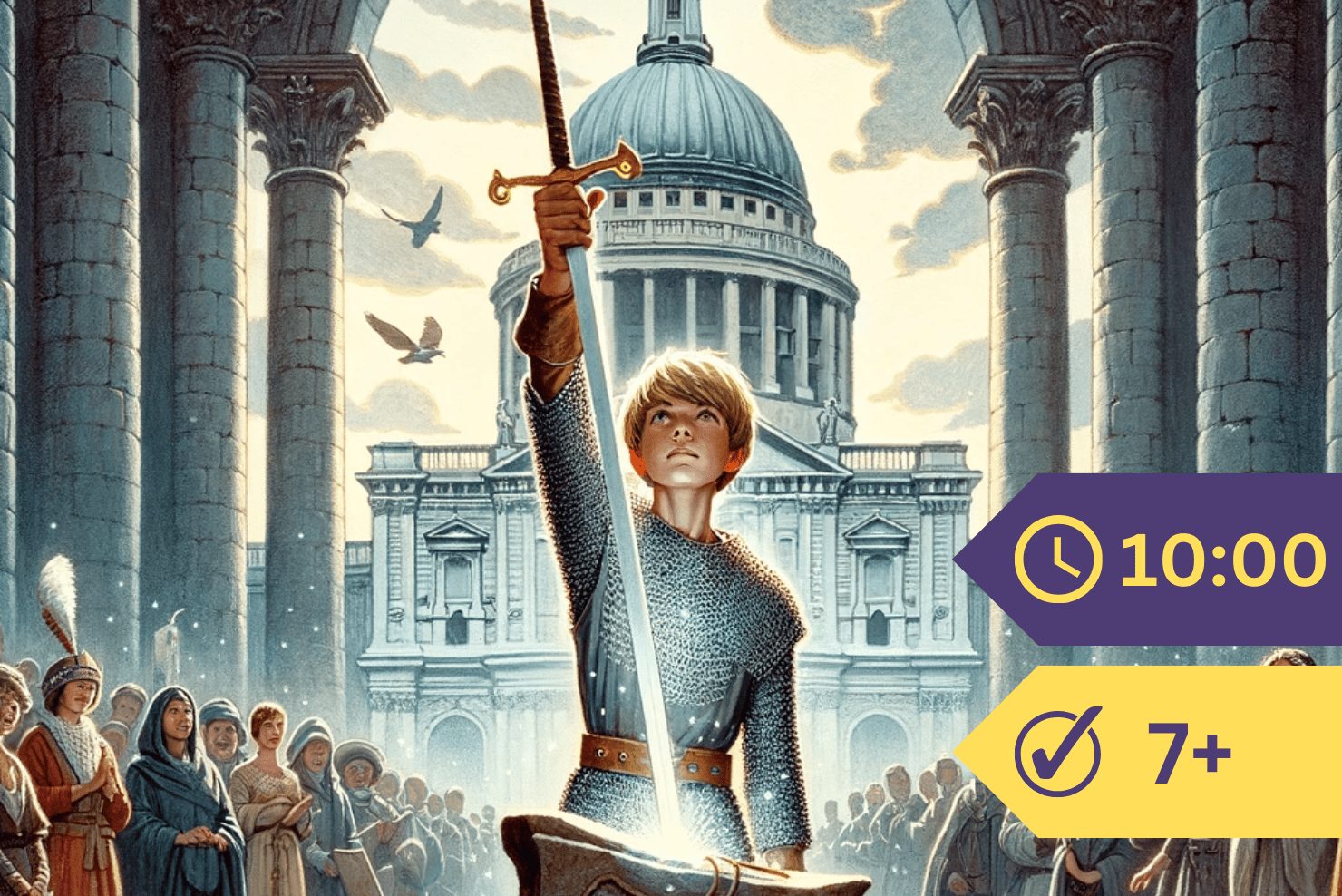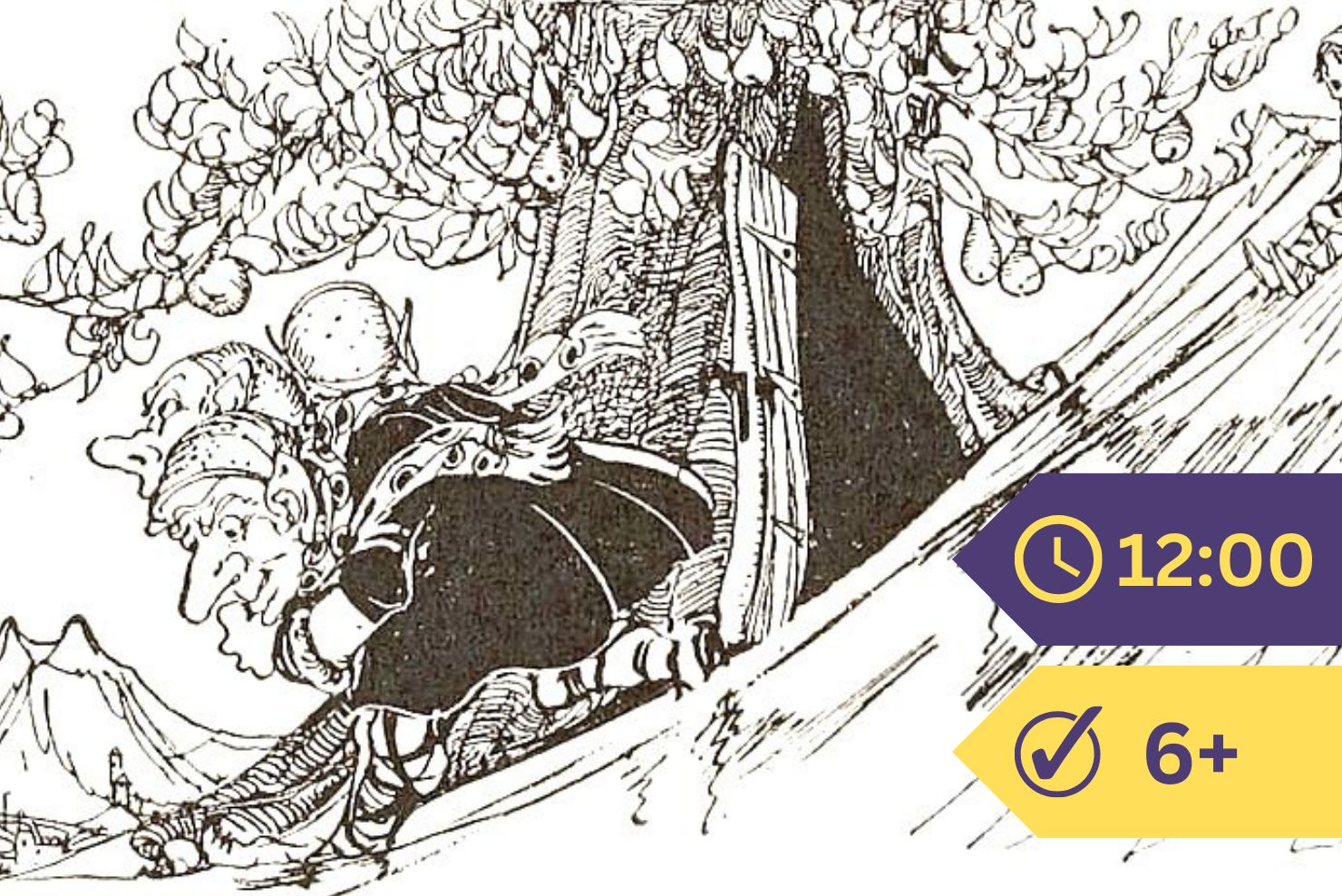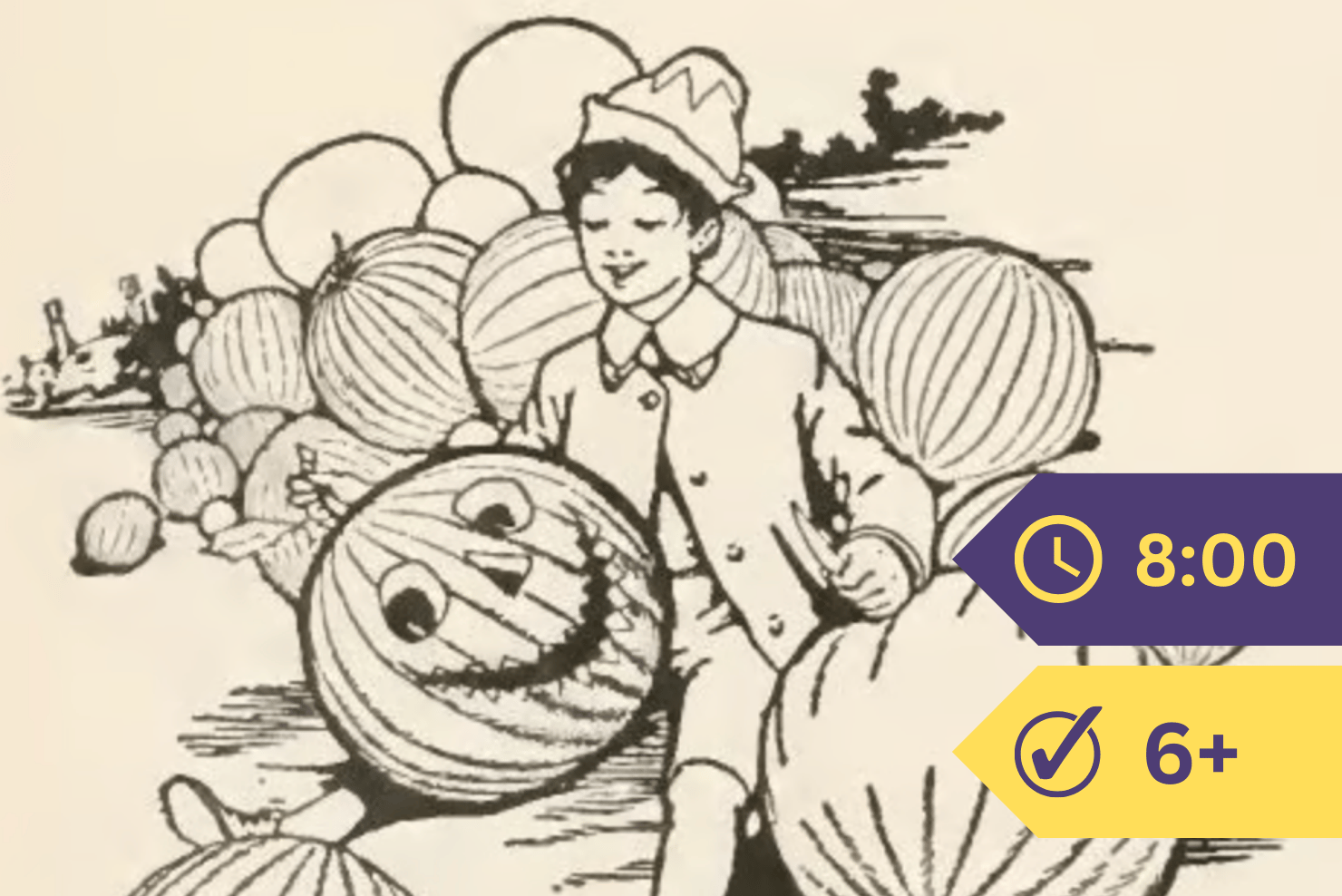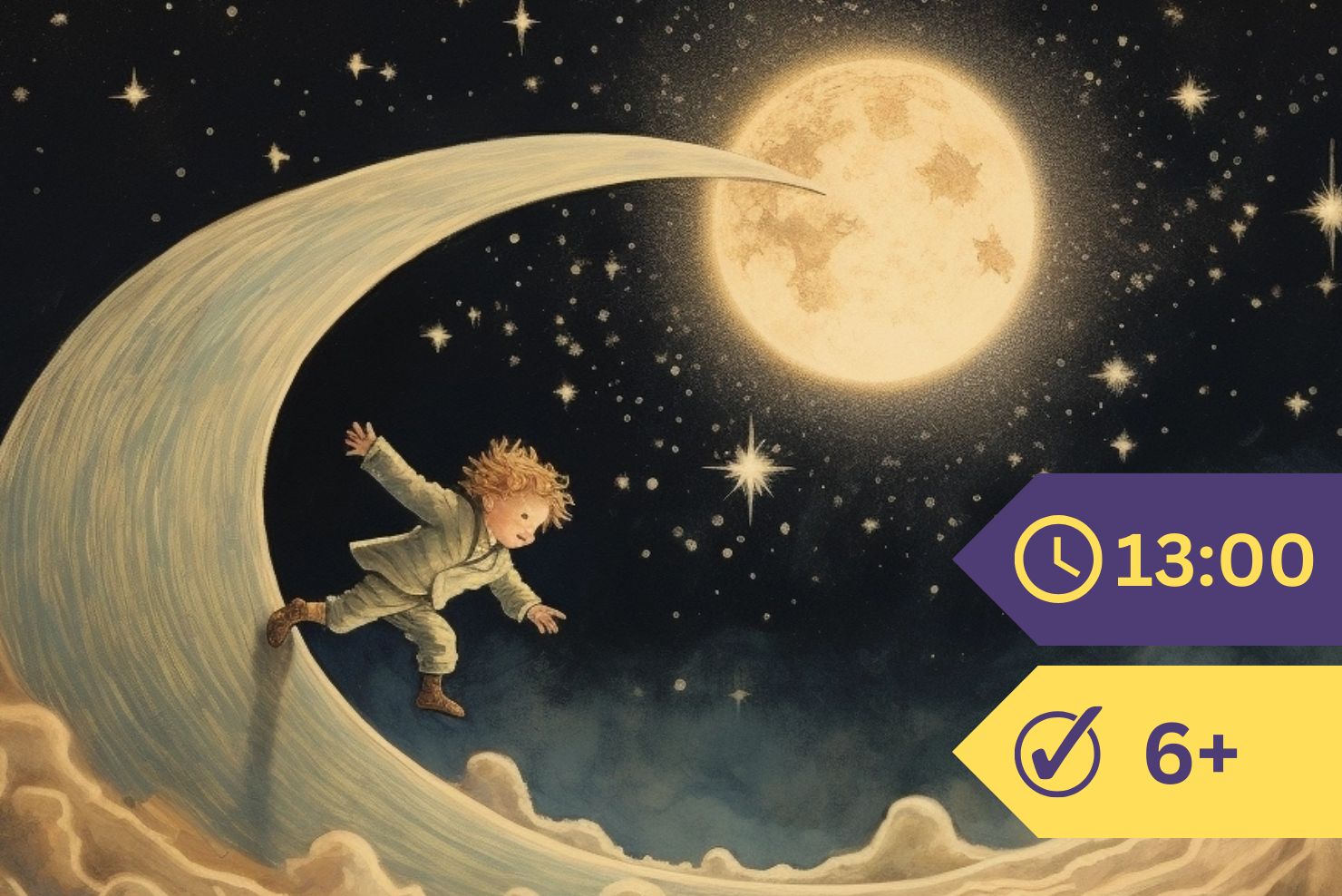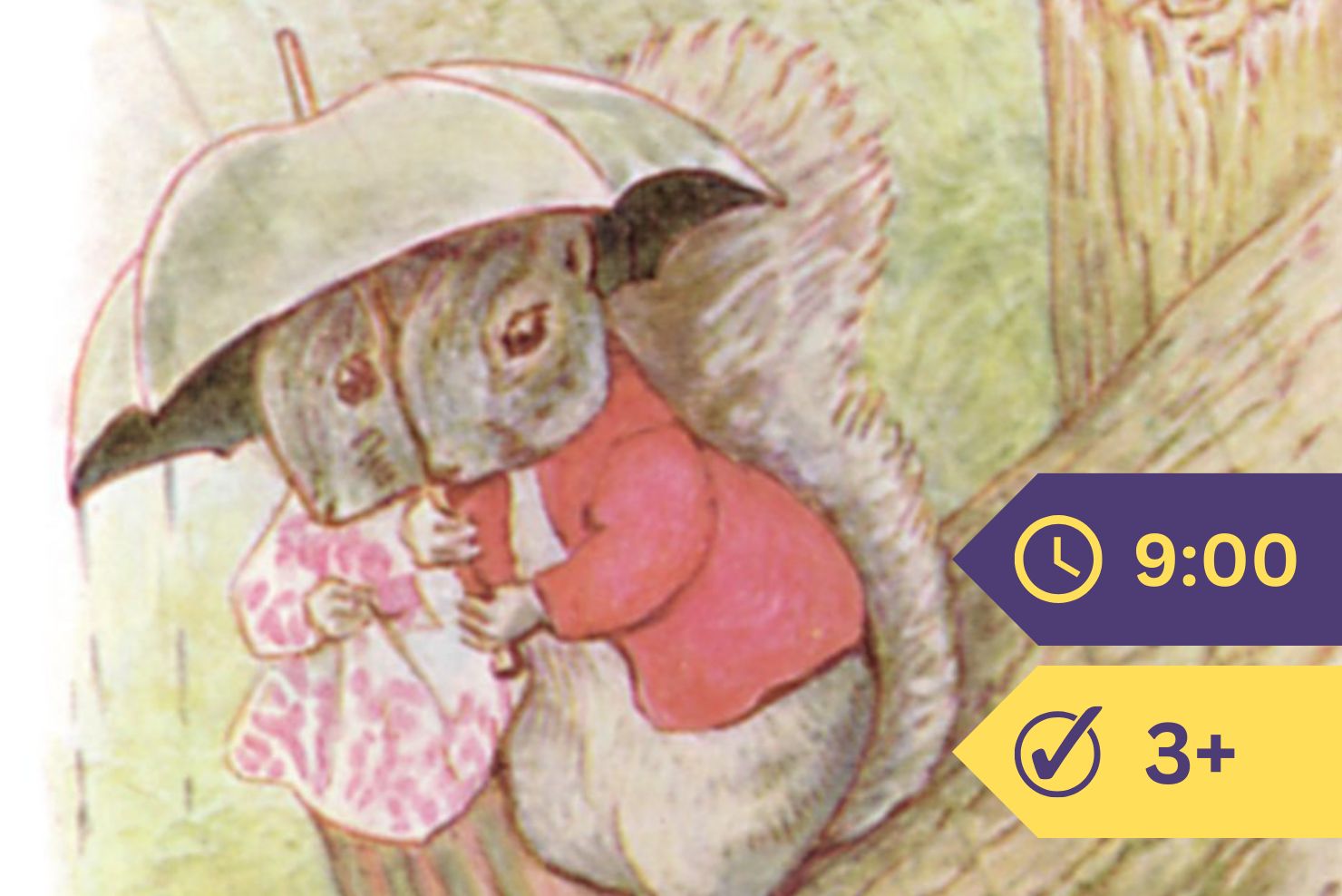In the days of Richard I there lived a famous outlaw who was known by the name of Robin Hood. He was born at Locksley in the county of Nottingham, and was of noble origin, for he is often spoken of as “Earl of Huntingdon.” Robin was very wild and daring, and having placed his life in danger by some reckless act, or possibly through some political offence, he fled for refuge to the greenwood. His chief haunts were Sherwood Forest in Nottinghamshire, and Barnsdale in Yorkshire. Round him soon flocked a band of trusty followers. An old chronicler states that Robin Hood “entertained an hundred tall men and good archers.” They robbed none but the rich, and killed no man except in self-defence. Robin “suffered no woman to be oppressed or otherwise molested; poor men’s goods he spared, abundantly relieving them” with spoils got from abbeys or the houses of rich people.
Robin Hood’s exploits were widely known, and although the poorer classes were all on his side, those in authority were naturally incensed against him. Many attempts were made to seize him, and large rewards were offered for his capture. He was often in danger of his life, and had many narrow escapes, but so daring was his courage, and so quick and clever his wit and resource that he always contrived to get clear away.
An old tradition says that the father of Robin was a forester, a renowned archer. On one occasion he shot for a wager against the three gallant yeomen of the north country—Adam Bell, Clym-of-the-Clough, and William of Cloudesly, and the forester beat all three of them.
The mother of Robin Hood was a niece of the famous Guy, Earl of Warwick, who slew the blue boar; her brother was Gamwel of Great Gamwel Hall, a squire of famous degree, and the owner of one of the finest houses in Nottinghamshire. When the other outlaws flocked to Robin Hood they begged him to tell them what sort of life they were to lead, and where they were to go, what they were to take and what to leave, what sort of people they were to rob, and whom they were to beat and to bind—in short, how they were to act in every circumstance.
“Have no fear, we shall do very well,” answered Robin. “But look you do no harm to any husbandman that tilleth with his plough, nor to any good yeoman that walketh in the greenwood, nor to any knight or squire who is a good fellow. And harm no folk in whose company is any woman.
“But fat rascals, and all who have got rich by pilfering, canting, and cheating, those you may beat and bind, and hold captive for ransom. And chiefly the Sheriff of Nottingham—look you, bear him well in mind.”
And his followers promised to pay heed to his words, and carry them out carefully.
Chief among the band of outlaws known as “Robin Hood’s merry men” was “Little John,” so called because his name was John Little, and he was seven feet high. Robin Hood was about twenty years old when he first came to know Little John, and they got acquainted in this way. Robin was walking one day in the forest when coming near a brook he chanced to spy a stranger, a strong lusty lad like himself. The two met in the middle of a long narrow bridge, and neither would give way. They quarrelled as to which should be the master, and finally agreed to fight with stout staves on the bridge, and whichever fell into the water the other was to be declared to have won. The encounter was a stiff one, but finally the stranger knocked down Robin Hood, and tumbled him into the brook. Robin bore no malice, but owned at once the other had got the best of it, and seeing what a stout nimble fellow he was, persuaded him to join his band of archers, and go and live with them in the greenwood.
Next to Little John the chief man was Will Scarlet, who in reality was Robin’s own cousin or nephew, young Gamwel of Gamwel Hall. Having slain his father’s steward either by accident or in some brawl, young Will fled to his kinsman, Robin Hood, in Sherwood Forest, where, as in the case of Little John, he first made his acquaintance by fighting with him. As young Will on this occasion happened to be dressed very smartly in silken doublet and scarlet stockings Robin Hood dubbed him “Will Scarlet,” by which name he was always afterwards known.
Besides these two famous outlaws there were many others of lesser note who from time to time joined the band. Among them may be mentioned “Gilbert of the white hand” who was almost as good an archer as Robin himself; Allen-a-Dale, whose bride Robin Hood helped him to secure; Much, the son of a miller; George-a-Green; Friar Tuck; Will Stutely, who was taken prisoner by the Sheriff of Nottingham and nearly hanged, but was rescued from the gallows by the gallant yeomen; Arthur-a-Bland, the sturdy tanner of Nottingham, who beat Robin when they fought with staves; the jolly tinker of Banbury who went out to arrest Robin, but ended by joining his band, and the chief ranger of Sherwood Forest, who did the same.
Lastly, there was the bonny maid of noble degree, who was known in the north country as Maid Marian. She had loved Robin Hood when they were young together, in the days when he was still the Earl of Huntingdon, but spiteful fortune forced them to part. Robin had to fly for refuge to the greenwood, and Maid Marian, unable to live without him, dressed herself like a page, with quiver and bow, sword and buckler, and went in search of him. Long and wearily she ranged the forest, and when the lovers met they did not know each other, for Robin, too, had been obliged to disguise himself. They fought as foes, and so sore was the fray that both were wounded, but Robin so much admired the valour of the stranger lad that he bade him stay his hand, and asked him to join his company. When Marian knew the voice of her lover she quickly made herself known to him, and great was the rejoicing. A stately banquet was quickly prepared, which was served in a shady bower, and they feasted merrily, while all the tall and comely yeomen drank to the health of Robin Hood’s bride. So for many years they dwelt together with great content in the greenwood.
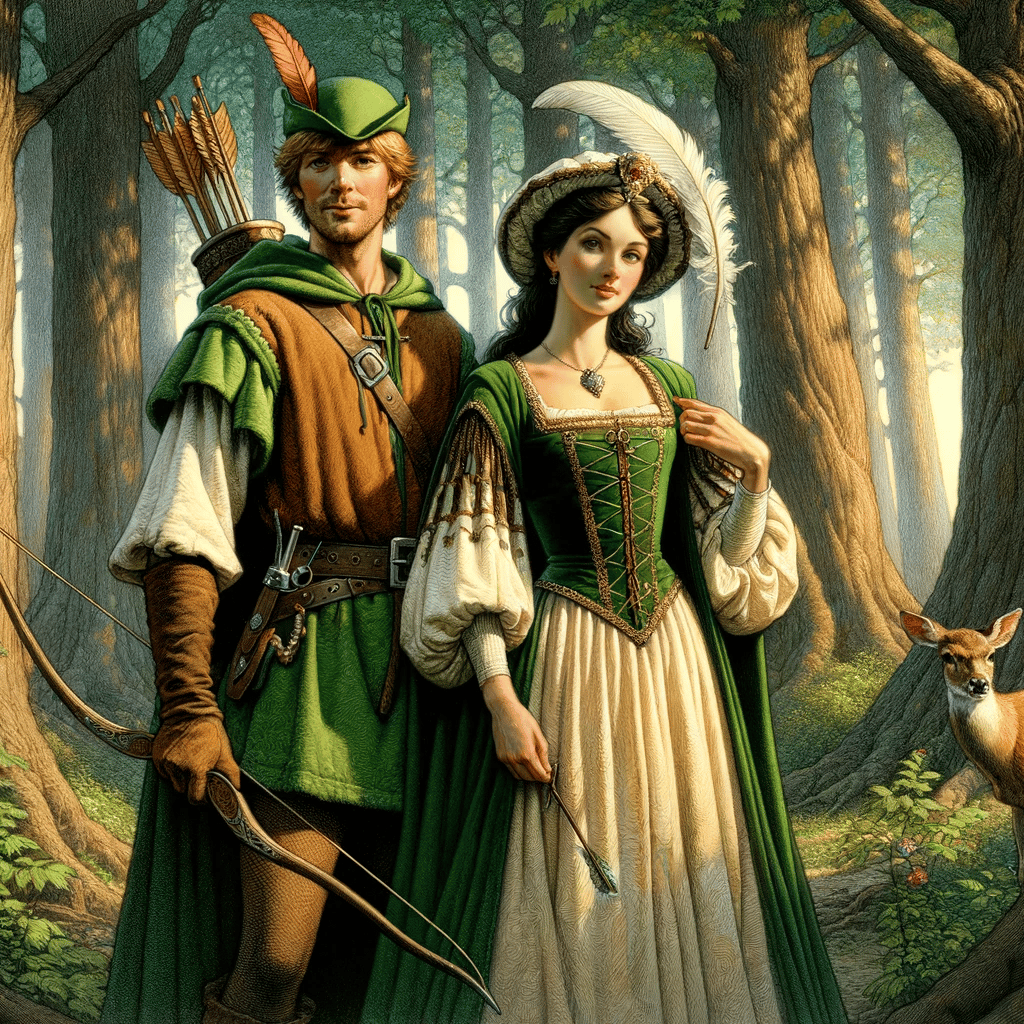
It happened one day as Robin Hood stood under a tree in Barnsdale that Little John went up to him, and said: “Master, if you would dine soon, would it not be well?”
“I do not care to dine,” answered Robin, “until I have some bold baron or stranger guest to eat with us, or else some rich rascal who will pay for the feast, or else some knight or squire who dwells in these parts.”
“It is already far on in the day; now heaven send us a guest soon, so that we may get to dinner,” said Little John.
“Take thy good bow in thy hand,” said Robin, “and let Will Scarlet and Much go with thee, and walk up to the Sayles and so to Watling Street. There wait for some strange guest whom it may very well chance you will meet. Be it earl or baron, or abbot or knight, bring him here to lodge; his dinner shall be ready for him.”
So these three good yeomen, Little John, Will Scarlet, and Much went off to the great high-road which is known as Watling Street, and there they looked east and they looked west, but not a man could they see. But as they looked in Barnsdale, by a little private path there came a knight riding, whom they soon met. Very dreary and woebegone seemed this traveller; one foot was in the stirrup, the other dangled outside; his hood hung down over his eyes; his attire was poor and shabby; no sorrier man than he ever rode on a summer’s day.
Little John bent low in courtesy before him.
“Welcome, sir knight! Welcome to greenwood! I am right glad to see you. My master hath awaited you fasting these three hours.”
“Who is your master?” asked the knight.
“Robin Hood, sir,” answered Little John.
“He is a brave yeoman; I have heard much good of him,” said the knight. “I will go in company with you, my comrades. My purpose was to have dined to-day at Blyth or Doncaster.”
So the knight went with the yeomen, but his face was still sad and careworn, and tears often fell from his eyes. Little John and Will Scarlet brought him to the door of the lodge in Barnsdale, where the outlaws were staying at that time, and as soon as Robin saw him he lifted his hood courteously, and bent low in token of respect.
“Welcome, sir knight, welcome. I am right glad to see you. I have awaited you fasting, sir, for the last three hours.”
“God save thee, good Robin, and all thy fair company,” returned the knight pleasantly.
Robin brought clear water from the well for the guest to wash himself from the dust of travel, and then they sat down to dinner. The meal was spread under the trees in the greenwood, and rarely had the stranger seen a repast so amply furnished. Bread and wine they had in plenty, and dainty portions of deer, swans and pheasants, plump and tender, and all kinds of water-fowl from the river, and every sort of woodland bird that was good for eating.
Robin heaped his guest’s plate with choice morsels, and bade him fall to merrily.
“Eat well, sir knight, eat well,” he urged him.
“Thanks, thanks,” said the knight. “I have not had such a dinner as this for three weeks. If I come again into this country, Robin, I will make as good a dinner for you as you have made for me.”
“Thanks for my dinner, good knight, when I have it,” returned the outlaw. “I was never so greedy as to crave for dinner. But before you go, would it not be seemly for you to pay for what you have eaten? It was never the custom for a yeoman to pay for a knight.”
“I have nothing in my coffers that I can proffer, for shame,” said the knight.
“Go, Little John, and look,” said Robin. “Now swear to me that you are telling the truth,” he added to his guest.
“I swear to you, by heaven, I have no more than ten shillings,” said the knight.
“If you have no more than that I will not take one penny,” said Robin. “And if you have need of any more I will lend it you. Go now, Little John, and tell me the truth. If there be no more than ten shillings, not one penny of that will I touch.” Little John spread out his mantle on the ground ready to hold any treasure he might find, but when lie looked in the knight’s coifer he saw nothing but one piece of money of the value of half a pound. He left it lying where it was, and went to tell his master.
“What tidings, John?” asked Robin.
“Sir, the knight is true enough.”
“Fill a cup with the best wine, and hand it first to the knight,” said Robin. “Sir, I much wonder that your clothing is so thin. Tell me one thing, I pray. I trow you must have been made a knight by force, or else you have squandered your means by reckless or riotous living? Perhaps you have been foolish and thriftless, or else have lost all your money in brawling and strife? Or possibly you have been a usurer or a drunkard, or wasted your life in wickedness and wrong-doing?”
“I am none of those things, by heaven that made me,” declared the knight. “For a hundred years my ancestors have been knights. It has often befallen, Robin, that a man may be disgraced, but God who waits in heaven above can amend his state. Within two or three years, my neighbours knew it well, I could spend with ease four hundred pounds of good money. Now I have no goods left but my wife and my children. God has ordained this until He see fit to better my condition.”
“In what manner did you lose your riches?” asked Robin.
“By my great folly and kindness,” was the answer. “I had a son, who should have been my heir. At twenty years old he could joust right well in the field. Unhappily the luckless boy slew a knight of Lancashire, and to pay the heavy penalty exacted from him to save his rights I was forced to sell all my goods. Besides this, Robin, my lands are pledged until a certain day to a rich abbot living close by here at St. Mary’s Abbey.”
“What is the sum?” asked Robin.
“Sir, four hundred pounds, which the abbot lent me.”
“Now, if you lose your land what will become of you?” asked Robin.
“I will depart in haste over the salt sea to Palestine. Farewell, friend, there is no better way.” Tears filled the knight’s eyes, and he made a movement to go. “Farewell, friends, farewell! I have no more that I can pay you.”
But Robin stopped him as he would have gone.
“Where are your friends?” he asked.
“Sir, there are none who will know me now. When I was rich enough at home they were glad to come and flatter me, but now they all run from me. They take no more heed of me than if they had never seen me.”
The knight’s sorrowful story so touched the hearts of Little John and Will Scarlet that they wept for pity. “Come, fill of the best wine,” cried Robin. “Come, sir, courage! Never be downcast! Have you any friends from whom you can borrow?”
“None,” replied the knight.
“Come forth, Little John, and go to my treasury,” said Robin. “Bring me four hundred pounds, and look that you count it out carefully.”
Then forth went Little John, and with him went Will Scarlet, and he counted out four hundred pounds. But Much, the miller’s son, did not look very well pleased to see all this money going into the hands of a stranger.
“Is this wisely done?” he muttered.
“What grieves you?” said Little John. “It is alms to help a noble knight who has fallen into poverty. Master,” he went on to Robin Hood, “his clothing is full thin; you must give the knight a suit of raiment to wrap himself in. For you have scarlet and green cloth, master, and plenty of rich apparel. I dare well say there is no merchant in England who has a finer store.”
“Give him three yards of cloth of every colour,” said Robin Hood, “and see that it be well meted out.”
Little John took no other measure than his bow, and every handful he measured he leapt over three feet.
“What devilkin’s draper do you think you are?” asked little Much in half-angry astonishment.
Will Scarlet stood still and laughed.
“John may well give him good measure,” he said. “It cost him but light.”
Little John paid no heed to their scoffing, but quietly went on with his task.
“Master,” he said to Robin Hood, when he had put aside a bountiful store for their guest, “you must give the knight a horse to carry home all these goods.”
“Give him a grey courser, and put a new saddle on it,” said Robin.
“And a good palfrey as befits his rank,” added little Much.
“And a pair of boots, for he is a noble knight,” said Will Scarlet.
“And what will you give him, Little John?” asked Robin.
“Sir, a pair of shining gilt spurs to pray for all this company. God bring him safely out of all his trouble.”
The poor knight scarcely knew how to thank them for all their goodness.
“When shall the day be for me to pay back the money you have lent me?” he said. “What is your will?”
“This day twelve-month under this greenwood tree,” said Robin. “It were a great shame,” he added, “for a knight to ride alone without squire, yeomen, or page to walk by his side. I will lend you my man, Little John, to be your lad. He may stand you in yeoman stead if ever you are in need.”
As the knight went on his way he thought how well matters had happened for him, and when he looked on Barnsdale be blessed Robin Hood. And when he thought of Will Scarlet, Much, and Little John he blessed them for the best company he had ever been in.
“To-morrow I must go to York town to St. Mary’s Abbey,” he said to Little John, “and to the abbot of that place I have to pay four hundred pounds. If I am not there by to-morrow night my lands will be lost for ever.”
The next day he strode out of the abbot’s hall, all his care gone; he flung off his worn raiment, put on his good clothing, and left the other lying where it fell. He went forth singing merrily, back to his own home at Wierysdale, and his lady met him at the gate.
“Welcome, my lord,” said his wife. “Sir, are all your possessions lost?”
“Be merry, dame,” said the knight, “and pray for Robin Hood that his soul may always dwell in bliss. He helped me out of my distress; had it not been for his kindness we should have been beggars. The abbot and I are in accord; he is served with his money; the good yeoman lent it me as I came by the way.”
The good knight, whose name was Sir Richard Lee, dwelt in prosperity at home till he had four hundred pounds all ready to pay back Robin Hood. He provided himself with a hundred bows made with the best string, and a hundred sheaves of good arrows with brightly burnished heads. Every arrow was an ell long, well dressed with peacock’s feathers, and they were all inlaid with silver so that it was a goodly sight to see. The knight provided himself also with a hundred men, well armed, and clothed in white and red, and in the same fashion he attired himself. He bore a lance in his hand, and a man led the horse which carried his change of apparel. And thus he rode with a light heart to Barnsdale.
As he drew near a bridge he was forced to tarry awhile, for there was a great wrestling, and all the best yeomen of the West Country had flocked to it. A good game had been arranged, and valuable prizes were offered. A white bull had been put up, and a great courser, with saddle and bridle all burnished with gold, a pair of gloves, a red gold ring, and a pipe of wine in prime condition. The man who bore himself the best would carry off the prize.
Now there was a certain worthy yeoman there who ought by rights to have been awarded the prize, but because he was a stranger the other wrestlers were jealous, and all set on him unfairly. As he was far from home and had no friends there, he would certainly have been slain if it had not been for the knight who, from the place where he stood, saw what was going on. He took pity on the yeoman, and swore no harm should be done to him, for the love he bore to Robin Hood. He pressed forward into the place, and his hundred archers followed him, with bows bent and sharp arrows to attack the crowd. They shouldered every one aside, and made room for Sir Richard Lee to make known what he had to say.
Then the knight took the yeoman by the hand, and declared he had fairly won the prize. He bought the wine from him for five marks, and bade that it should be broached at once, and that every one who wished should have a draught. Thus good humour and jollity were restored, and the rest of the sports went on merrily.
The knight tarried till the games were done, and in the meanwhile it came to be three hours after noon. And all this time Robin had waited fasting for the coming of the knight to whom twelve months before he had lent the four hundred pounds.

